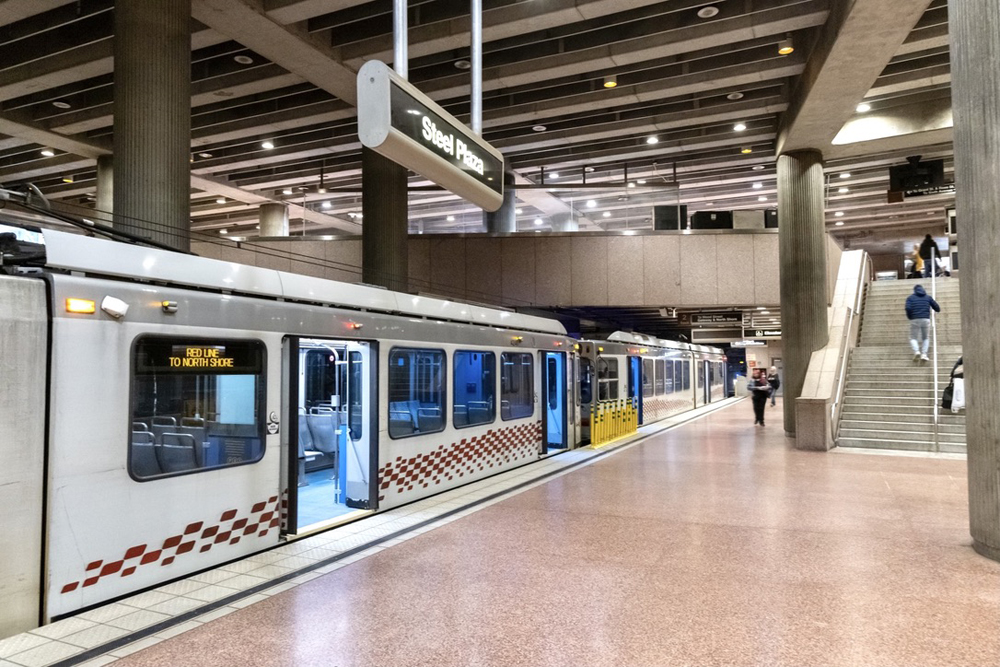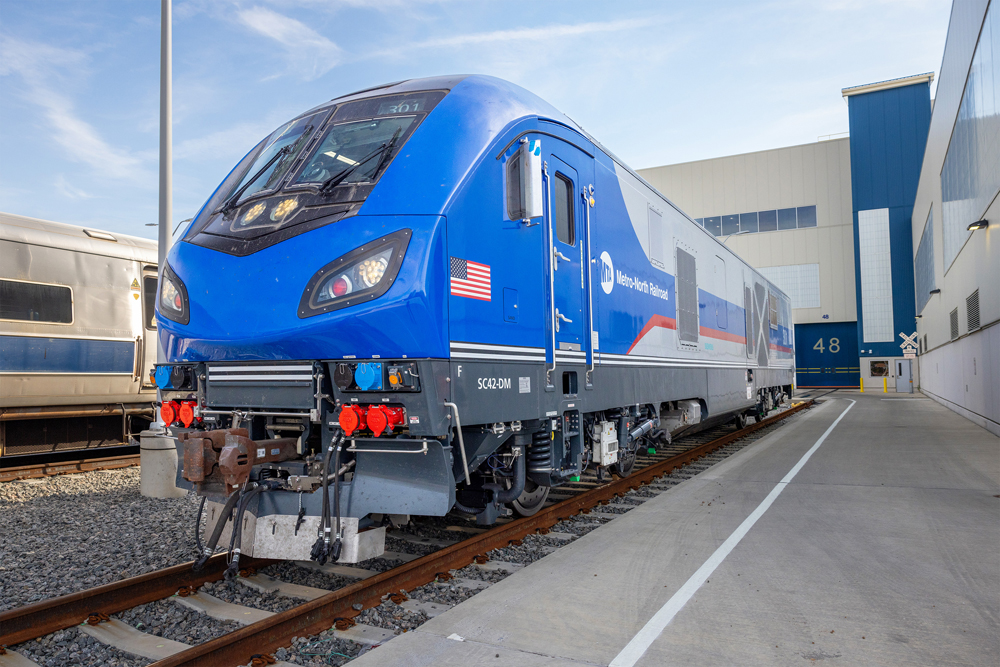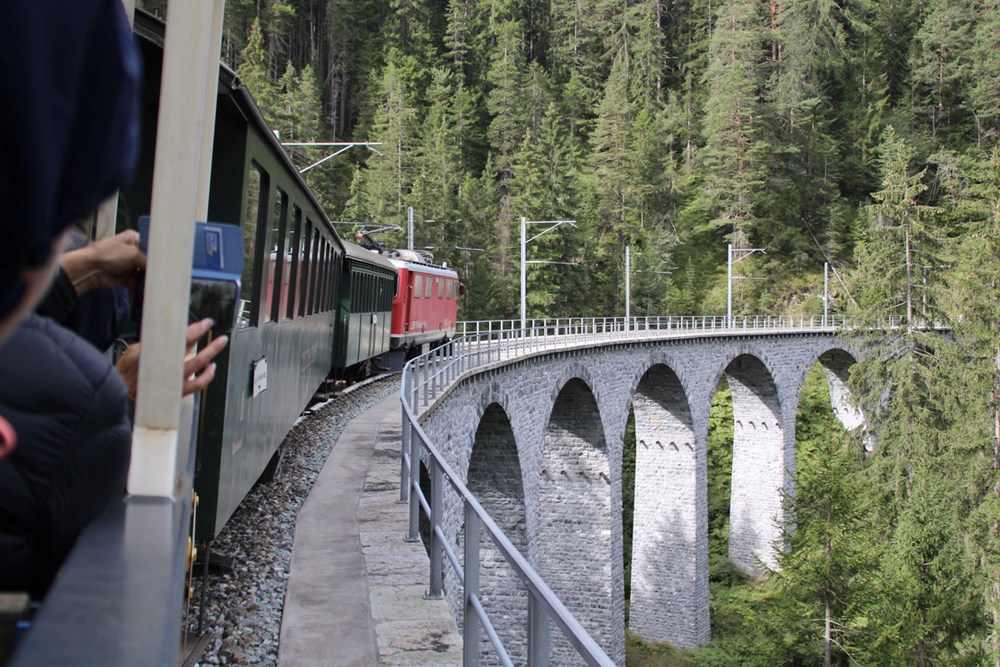Some significant rail news for Saturday morning:
— The $2 trillion coronavirus relief package passed by the House of Representatives and signed by President Trump on Friday includes expansion of railroad unemployment benefits, in addition to the previously reported financial aid for Amtrak and transit agencies [see “Trains News Wire Digest for Thursday, March 26”]. In a letter to American Short Line and Regional Railroad Association members, ASLRRA president Chuck Baker reports that the legislation waives the seven-day waiting period for filing a sickness or unemployment claim with the Railroad Retirement Board; provides an additional $1,200 in biweekly unemployment benefits; provides $475 million to fund the additional benefits resulting from those changes; and allows the board access to $130 million in American Recovery and Reinvestment Act funds to provide extended benefits through Dec. 31. In a statement, Amtrak, which will receive more than $1 billion in relief, said, “This essential funding for Amtrak will help keep people working and the economy moving during this unprecedented situation. At Amtrak, we continue to keep employee and customer safety as a top priority, as we take aggressive measures to cut costs and adjust service so that we come out of this crisis ready to continue serving the nation.”
— The Federal Railroad Administration has granted all railroads a waiver from several inspection, certification, and operating regulations in response to a request for relief because of the COVID-19 pandemic. Among other provisions, the waiver allows railroads to, with certain qualifications and documentation:
– Permit workers to exceed hours-of-service regulations, although railroads must “employ due diligence to reduce or eliminate excess service;
– Inspect track less frequently than is usually required;
– Temporarily suspend operating tests and inspections of employees;
– Extend deadlines for certification of engineers and conductors;
– Use engineers on a territory for which they are not specifically qualified;
– And operate trains over longer distances without an intermediate brake inspection.
— A suspect was taken into custody and being questioned about possible arson in the Friday fire that killed the operator of a New York City Transit subway train, the New York Daily News reports. The fire apparently started in a shopping cart, and may have involved an accelerant. Operator Garrett Goble, 36, died after apparently being overcome by smoke while helping passengers evaculate the train. The Metropolitan Transportation Authority has offered a $50,000 reward for information leading to the arrest and conviction of anyone involved in the fire, which gutted the subway car where it started. The New York Times reports four people were in critical condition as of Friday after suffering from smoke inhalation.















If railroads can’t inspect the track by the previous FRA rules, then trains should be required to go slower over that track so as to have less stress on the rails and roadbed.
So would you want get on a plane with the FAA waiving safety requirements? I think not.
I’m inclined to agree with Brett. If the railroads make it through this without any major screw-ups, then they might be tempted to argue to make the waivers permanent as they proved that they can operate safely with them in place.
I disagree with track and train inspection waivers. Crew certification and tests makes sense. I’m assuming the waiver on engineer territory is in case employees start becoming unavailable in large numbers due to the virus. I’ve always said I’ll go anywhere at 10 MPH. However, the railroads have also cut their own throats with massive layoffs and reductions in available resources.
The only one I might agree with is extending the certification of engineers and conductors if they are talking about renewals of certification. I find the rest of them absolutely dangerous. Last thing you want is an engineer unfamiliar with the territory running thru the mountains.
Like the Amtrak 501 thing, NTSB # RAR 1901, how quick people forget.
Damn, FRA waived safety issues, now don’t forget to put an end to that “temporary “ waiver, seems that sometimes they “govt” forgets that, especially the “engineer territory stuff” yea, thats kinda of important huh!
I’m pretty sure the FRA weighed the pros and cons of these changes, and Ron Battory isn’t someone to take safety lightly, so I don’t have a problem with any of them.
The ONLY one that seems justifiable on the surface is reducing track inspection rates. Fewer shorter trains probably make that one acceptable.
Sorry NOT in favor of eliminating these safety regs. The Class 1s should retain enough staffing to continue with them. The furloughs resulting from reduced traffic levels are understandable, but those beyond that are not.